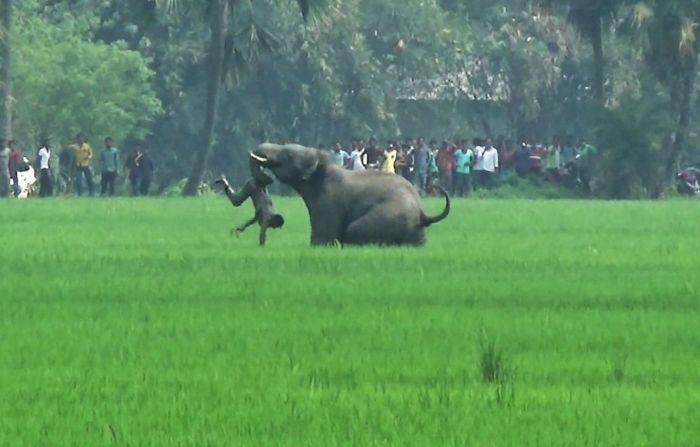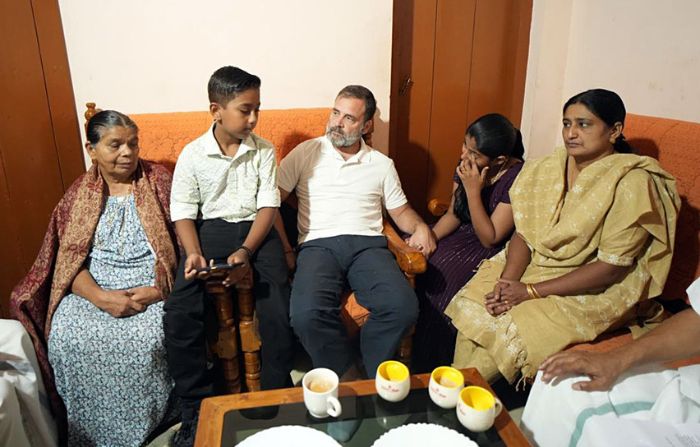- Friday, May 03, 2024
The residents have demanded measures to ensure their safety, including strong boundary walls, solar-powered fencing, elephant-proof trenches, electronic systems that were promised by the authorities previously.

By: Shubham Ghosh
FREQUENT elephant attacks and deaths and injuries to people caused by them have triggered anger among local residents in many parts of the southern Indian state of Kerala and they have started protesting against authorities for allegedly failing to protect their lives.
In February, at least three deaths caused by elephant attacks have been reported from Wayanad district of Kerala and despite the authorities of both Kerala and its northern neighbour Karnataka announcing compensation between 1-1.5 million rupees, the protesters are not convinced about their safety.
On February 10, a local farmer named Ajeesh Joseph was trampled to death by a radio-collared white elephant in a second such instance in Wayanad district in three weeks. While the protesters were calmed down by the authorities with the announcement of the compensation for the family of the deceased and a job for his widow, they refused to withdraw after a wild elephant killed Pakkam Vellachalil Paul, a 50-year-old employee of a state-owned eco-tourism project in the state during his duty hours.
Read: Saving the jumbos: AI helps eliminate elephant deaths on railway tracks in India’s northeast

Speaking to the BBC, Ms Joseph, daughter of Ajeesh, said they often see elephants roaming around when they go out and while not all of them are aggressive, it becomes difficult for them to identify the dangerous ones.
The funeral of Paul last week turned violent as protesters sat with his mortal remains and it was only after intervention by local politicians and religious leaders that the last rites could be carried out.
Read: India’s oldest domestic elephant Bijuli Prasad dies in Assam at 89: ‘Was a symbol of pride’
Police accused the protesters of assaulting forest department officials, damaging a vehicle and obstructing the cops’ work.
The matter has also got a political touch as Rahul Gandhi, a frontline leader of Indian National Congress who is a national lawmaker from Wayanad, went to the houses of victims of animal attacks on Sunday (18). The Congress is in the opposition in Kerala.
The government of India’s only communist-ruled state also convened an all-party meeting and decided to bear all medical expenses of those who were affected by such animal attacks, the BBC reported. Forest officials said orders were also issued to transquilise the elephant that killed Joseph.
The residents demanded strong boundary walls, solar-powered fencing, elephant-proof trenches, electronic systems that provide early warning, creation of wildlife corridors, among others — things that have been promised by the authorities.
The residents were also angry that neither the chief minister of Kerala, Pinarayi Vijayan, nor the forest minister, visited the area since the attacks took place.
Forest minister AK Saseendran, however, admitted that man-animal conflict is a major problem in Kerala. The state, which covers only 1.2 per cent of India’s total land area, accounts for 2.3 per cent of its forest area.
Wayanad has 11,531 square-kilometre area under forest cover, which is nearly 30 per cent of Kerala’s geographical area.
Saseendran told the news outlet that loss of habitat and climate change and its effect on the ecosystem have led to growing human-animal conflicts in Kerala.
“We need to protect the lives of both humans and animals and ensure a healthy coexistence,” he told the BBC.
![]()